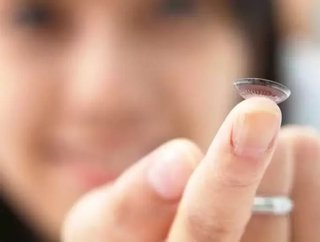How Google is changing the world, this time with contact lenses

According to reports, Google has been granted a patent related to the manufacturing of contact lenses. This comes at a time when the company’s approach to Glass is in something of a transition.
Google pulled the plug on the first phase of Google Glass earlier this year, but has maintained that the project is not dead. In fact reports this week have been circulating after executive chairman Eric Schmidt said that Glass is a “big and very fundamental platform for Google.”
“We ended the Explorer program and the press conflated this into us canceling the whole project, which isn’t true,” he was quoted as saying. “Google is about taking risks and there’s nothing about adjusting Glass that suggests we’re ending it.”
Before we get too far ahead of ourselves, Google does already make smart contact lenses that are not part of the Glass program. Google’s current contact lenses are related to health – specifically keeping glucose levels under control for diabetics.
Last summer, Google partnered with Novartis to develop the lenses and better compete in the blood-sugar tracking market as well as treat presbyopia, a condition in which eye focus diminishes with age. As part of the deal, Novartis’ Alcon eye care unit would reportedly continue to develop and commercialize Google’s contact lens technologies.
The project was co-developed by Babak Parviz, one of the original Google Glass engineers, who has since moved on to Amazon.
Alongside the obvious health benefits, Parviz also cites Google contact lenses being useful in gaming, virtual reality, augmented reality, interfacing with mobile, super vision, night vision, and multi-focus as possibilities connected with the emerging technology.
The point is that smart contact lenses may do a lot more interesting things down the road, and Google has been researching the capabilities for quite some time. Now it has a new patent related to making them.
The patent reads: “Contact lenses and methods of manufacturing contact lenses are provided. In one aspect, a method includes: forming a substrate having an uneven surface; providing a sensor at a first region of the substrate; providing a chip at a second region of the substrate; and encapsulating the substrate, sensor and chip in a polymer. The method also includes: patterning interconnections from the first region of the substrate to the second region of the substrate; and patterning metal pads proximate to the second region of the substrate. The chip can be provided on a metal pad. The uneven surface can be a sloped surface or one or more sloped channels in the substrate, and the channels can be wide enough to receive interconnections for the chip and to receive the chip. Further, the substrate can be ring-shaped and curved prior to encapsulation.”
The company applied for the patent in September of 2012, and it was just granted.
It has been said that one of the greatest hurdles the company has had to overcome is the look of Google Glass – something that Google contact lenses will be able to overcome. Watch this space.






